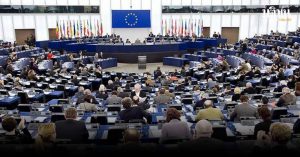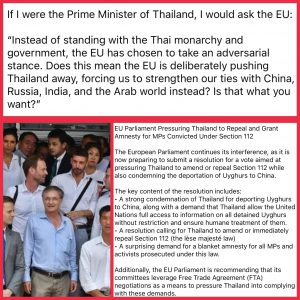
By Atsadang Yommanak
The Dangers of a Nominee Prime Minister
A Prime Minister who lacks the necessary knowledge and experience in governing a country can pose significant risks to national stability and development. Managing a country is a complex task that requires strong analytical skills, sound decision-making, and effective management. Without these competencies, a leader may encounter various challenges that could destabilize the nation.
Examples of Potential Problems:
1. Vulnerability to Manipulation
A Prime Minister who lacks a deep understanding of governance structures and processes may become susceptible to manipulation by powerful interest groups or individuals. Such a leader could become a victim of corruption or the misuse of power, being easily controlled or influenced by others who do not have the nation’s best interests at heart.
2. Inadequate Crisis Management
Inexperience in leadership can lead to ineffective responses during crises, whether they be economic, public health emergencies (such as pandemics), or other unforeseen disasters. Poor crisis management can exacerbate the situation, causing significant damage to the country and making recovery difficult.
3. Missed Opportunities for Development
A leader without the necessary experience may fail to identify or leverage opportunities for national growth and development. Economic, educational, and social advancements may be stunted due to the leader’s inability to develop strategic plans or effectively implement policies that promote long-term progress.
The Role of a Nominee Prime Minister
A “nominee” Prime Minister refers to a leader who holds office in name only, with actual power and decision-making being exercised by others behind the scenes. Such a situation arises when the head of government lacks full authority and is essentially a figurehead controlled by external actors with hidden agendas. This shadow leadership undermines the autonomy of the Prime Minister and places real control in the hands of those behind the scenes.
This type of governance can be detrimental to transparency and accountability, eroding public trust and posing significant threats to democratic systems.
The public may find it difficult to hold the government accountable if decision-making power lies with those who are not openly visible.
It is surprising that political groups, such as those associated with red or orange factions—often claiming to uphold democratic values—remain silent in the face of such issues. The silence raises questions about the consistency of their commitment to democracy and transparency in governance.
Why do those who claim to stand for democracy remain completely silent?



